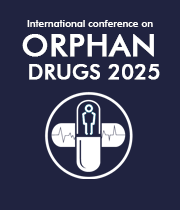Advancing Research for rare diseases
Rare disease research is difficult due to the scarcity of patient information on the conditions. Because there are so few people affected, patient recruitment for clinical studies might be very difficult. To address these difficulties, a number of charities, patient advocacy organisations, and government agencies have developed online registries to collect patient data for researchers, doctors, and public health experts to use. It's crucial to remember that study into the aetiology, processes, and treatment approaches of rare diseases can help to advance advancements in common diseases. Rare diseases are biologically complex, and scientists are working hard to figure out what causes them and how they progress clinically. As researchers identify the molecular and genetic drivers of many diseases, we've witnessed amazing progress in the creation of medicines to treat patients with rare diseases.
- Bioinformatics Methodologies
- Drug Repositioning
- Systematic Studies
- Data Standardization
- Advanced Techniques

Sergey Suchkov
The Russian University of Medicine & Russian Academy of Natural Sciences, Russian Federation
Vladlen Slepak
University of Miami, United States
Harsha Rajasimha
Jeeva Clinical Trials, Inc, United States
Vladlen Slepak
University of Miami, United States
Harsha Rajasimha
Jeeva Clinical Trials, Inc, United States
Sergey Suchkov
The Russian University of Medicine & Russian Academy of Natural Sciences, Russian Federation


Title : Emerging solutions for inclusive orphan drug clinical trials management
Harsha Rajasimha, Jeeva Clinical Trials, Inc, United States
Title : Ectopically expressed olfactory receptors as an untapped family of drug targets. Discovery of agonists and antagonists of OR51E1, an understudied G protein-coupled receptor
Vladlen Slepak, University of Miami, United States
Title : Personalized and Precision Medicine (PPM) as a unique healthcare model to secure the human healthcare and biosafety among childhood
Sergey Suchkov, The Russian University of Medicine & Russian Academy of Natural Sciences, Russian Federation
Title : Orphan and rare disease emerging as a global public health priority through the view of personalized and precision medicine: How to use the latter to revolutionize pediatric services
Sergey Suchkov, The Russian University of Medicine & Russian Academy of Natural Sciences, Russian Federation
Title : Personalized and Precision Medicine (PPM) though the view of reproductive healthcare, pediatric services and natural family planning: an option for clinicians and caregivers realize the potential of genomics-informed care to secure the individualized human biosafety
Sergey Suchkov, The Russian University of Medicine & Russian Academy of Natural Sciences, Russian Federation
Title : Democratizing ASO drug discovery at La Jolla Labs
Melissa Keenan, La Jolla Labs, United States